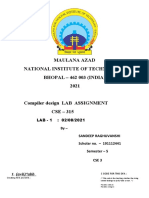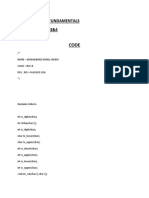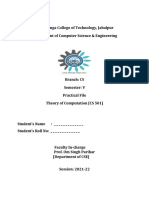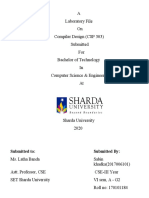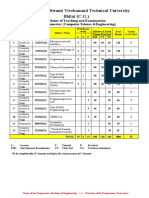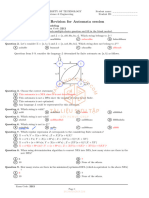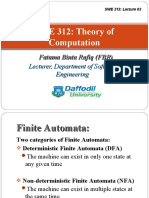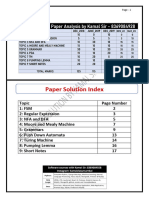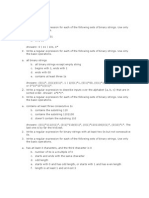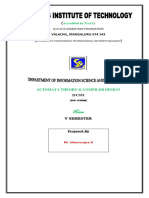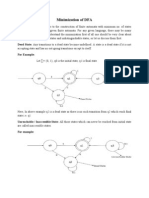0% found this document useful (0 votes)
75 views34 pagesFormal Language and Automata Theory Lab Practicals
The document outlines a series of programming experiments related to Formal Language and Automata Theory, including the design of various machines such as DFAs, PDAs, and Turing Machines. Each experiment includes an aim, source code, and expected outputs for different string acceptance criteria. The experiments cover topics like string acceptance based on specific patterns, counting characters, and converting NFAs to DFAs.
Uploaded by
bcvsassignment2022Copyright
© © All Rights Reserved
We take content rights seriously. If you suspect this is your content, claim it here.
Available Formats
Download as PDF, TXT or read online on Scribd
0% found this document useful (0 votes)
75 views34 pagesFormal Language and Automata Theory Lab Practicals
The document outlines a series of programming experiments related to Formal Language and Automata Theory, including the design of various machines such as DFAs, PDAs, and Turing Machines. Each experiment includes an aim, source code, and expected outputs for different string acceptance criteria. The experiments cover topics like string acceptance based on specific patterns, counting characters, and converting NFAs to DFAs.
Uploaded by
bcvsassignment2022Copyright
© © All Rights Reserved
We take content rights seriously. If you suspect this is your content, claim it here.
Available Formats
Download as PDF, TXT or read online on Scribd
/ 34

